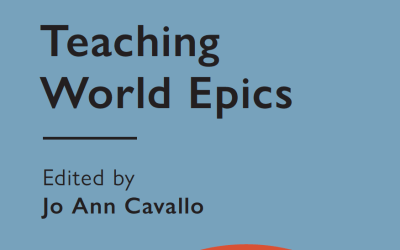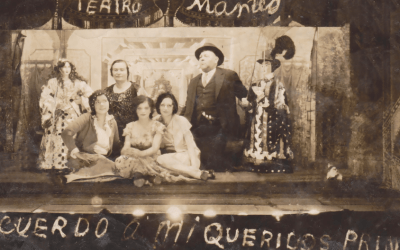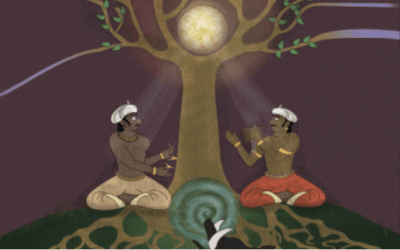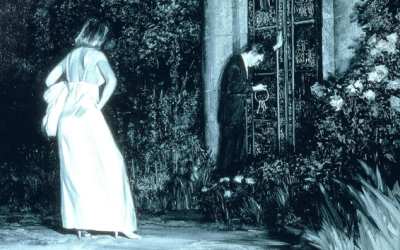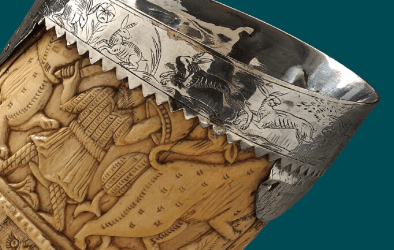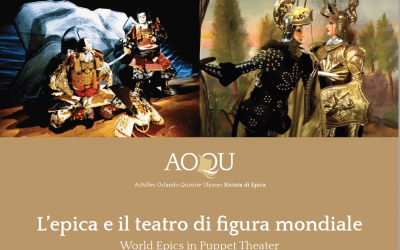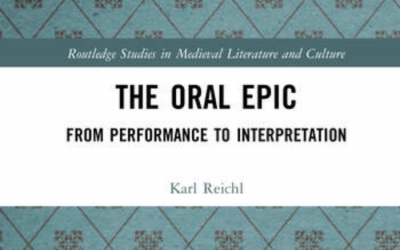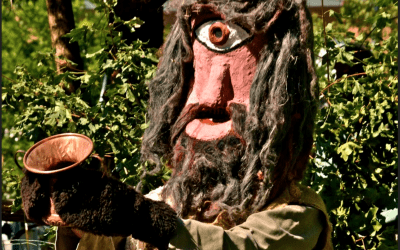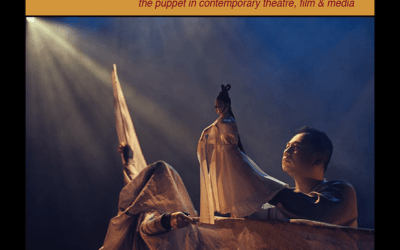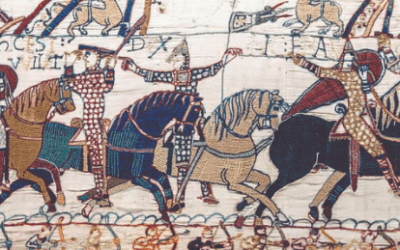Books, Series & Journals
Charlemagne in the Francophone World and Occitania
Edited by Philip E Bennett, Marianne Ailes
Contributions by Marianne Ailes, Philip E Bennett, Catherine Emerson, Catherine Léglu. Series: Bristol Studies in Medieval Cultures (Series Vol. Number: 14. Imprint: D.S.Brewer)
Explores the transmission and reception of the medieval legends of Charlemagne in the literatures of the French-speaking areas of France, Burgundy and England, and Occitania.
The spread of Charlemagne’s myth after his death was even more extensive than the empire he ruled during his life. This volume turns to the birthplace of many of these myths, and to the languages of the North (langue d’oïl) and South (langue d’oc) of that land. The first chapter traces the presence and development of his legend in the diverse political and cultural areas south of the Loire generally known as Occitania. The two following chapters analyse the often contradictory representations of Charlemagne in northern French-speaking regions in the twelfth to fourteenth centuries, through a careful selection of chansons de geste and chronicles. Using ethnographic theories, they consider his roles as warrior, secular ruler and conduit to the divine. The fourth and fifth chapters examine the exploitation of those images among readers of French in England and in French-speaking provinces ruled by the Dukes of Burgundy. Finally, the epilogue traces the continued vibrancy of Charlemagne stories in popular and high culture through to the twentieth century.
The Heroic Adventures of Qin Shubao (new English translation)
From Forgotten Tales of the Sui.
A Chinese Historical Novel by Yuan Yuling. Translated and edited, with introduction and annotation, by Robert E. Hegel.
Newly carved and illustrated, with critical commentary by Whistling Sword Studio from blocks stored at Famous Mountains Village. Hong Kong: Renditions Books of The Chinese University of Hong Kong, 2025.
From The Chinese University of Hong Kong Press:
“The novel Forgotten Tales of the Sui (Sui shi yiwen 隋史遺文, 1633) was in fact nearly forgotten in China, because much of its best parts were copied into the better known Romance of the Sui and the Tang (Sui Tang yanyi 隋唐演義, 1695). Those best parts were the adventures of Qin Shubao 秦叔寶. But the earlier novel has a fuller version and that is what is translated here: the coming-of-age tale of Qin Shubao as the scion of a line of righteous generals as he tries to establish himself in a perilous world and, through military prowess, earn the weapons inherited from his famous forebears.”
Amyris, de vita et gestis Mahometi Turcorum imperatoris (1471-76) translated into English and Turkish
Renaissance epic poem about Mehmet II by Giovanni Mario Filelfo (1426-1480).
Translated into English as The Emiriad: The Life and Deeds of Mehmet, Empereror of the Turks by Mark Herman and Ronnie Apter.
Translated into Turkish as Emir, by Ahmet Deniz Altunbas.
Preface by Jerry Brotton. Introduction by Filiz Barin Akman and Beyazit Akman.
Kopermik, 2023.
Overview from Barnes & Noble:
“The year was 1453. Soon after he had conquered Constantinople, an event that would change the entire history of the East and West, the determined young Turkish Sultan/Emir Mehmet II, only 21 years old, victoriously entered the city. Among the captives was a Latin named Angelo Boldoni, Ambassador of Ancona, Italy. However, as soon as Mehmet learned that Boldoni was a relative of Othman Lillo Ferducci, the son of his father Murat II’s close friend, Boldoni was released without ransom. Othman Ferducci’s gratitude for Mehmet’s generous gesture was expressed years later by his commissioning (and writing a Dedication to) an epic poem in praise of Mehmet’s conquests and adventures, an epic in the tradition of the Aeneid, Iliad, and Odyssey. The commission was given to the poet Gian Mario Filelfo, biographer of Dante and son of one of the leading humanists of the Renaissance, Francesco Filelfo. And so Amyris, a poem of about five thousand lines, was completed in Italy in 1476.
Amyris has remained in obscurity as a single manuscript copy, virtually a banned book, for centuries, perhaps because, unlike most other Western writings during the Renaissance, it is not wholly derogatory toward a Turkish and Muslim Sultan. Now, approximately 550 years after the poem’s composition, Associate Professors Filiz Barın Akman and Beyazıt Akman publish annotated Turkish and English translations of the poem, together with comprehensive introductory chapters offering historical information, textual analysis, commentary and criticism. The Akmans are experts about the image of the Turks and Islam in Western literature and historiography. The translation from Latin into English poetry is by Mark Herman and Professor Emerita Ronnie Apter and the Turkish translation is by Ahmet Deniz Altunbaş.”
https://www.barnesandnoble.com/w/the-emiriad-giovanni-mario-filelfo/1144356332
Tullia d’Aragona’s The Wretch, Otherwise Known as Guerrino
The only English translation of the first epic poem to be authored by an Italian woman.
“This is an unabridged bilingual, fully annotated edition of Tullia d’Aragona’s epic poem The Wretch. This mid-century epic reflects the many historical and religious changes taking place in the first half of the sixteenth century in Europe and the burgeoning literary debates following the publication of another Italian epic poem, Ariosto’s Orlando Furioso. The Wretch recounts the adventures of Guerrino, a nobleman captured by pirates as an infant and sold into slavery. His famous quest in search of his parents and his identity involves abductions, same-sex seductions, and skirmishes with fantastical beasts as he travels through Europe, Turkey, Africa, India, Arabia, and the Purgatory of St. Patrick. The poem occupies an important position in the development of the prestigious epic genre, the highest step on the ladder to literary recognition and fame, and Tullia’s work paved the way for the epics of other women writers in subsequent decades.”
Jangar: The Heroic Epic of the Kalmyk Nomads
Translated by Saglar Bougdaeva (University of California Press, 2023).
“This is the first English translation of Jangar, the heroic epic of the Kalmyk nomads, who are the Western Mongols of Genghis Khan’s medieval empire in Europe. Today, Kalmykia is situated in the territory that was once the Golden Horde, founded by the son of Genghis Khan, Juchi. Although their famed khanates and cities have long since disappeared under the sands of the Great Eurasian Steppe, the Kalmyks have witnessed, memorized, and orally transmitted some of the most transformative developments, both victorious and tragic, in the history of civilizations. A tribute to the protectors of the mythical country Bumba, Jangar reflects the hopes and aspirations of the Kalmyk people as well as their centuries-long struggle for their cultural existence.
This new English translation is more than a tribute to the artistic creativity and imagination of the Kalmyk people—it is also an important step in their struggle for cultural survival. It was only after centuries of oral transmission that the songs and stories surrounding Jangar were written down. When the first translation, into Russian, finally appeared, Stalin had the entire Kalmyk population deported to Siberia and ordered that their national literature be eliminated from the published world. This Soviet repression has had enormous consequences for world literature, silencing nomadic voices and keeping hidden their distinctive contributions. Making Jangar available in English is a landmark event, bringing a lost classic to the world’s attention and restoring the voices of an almost-erased tradition at the heart of the history of Eurasia.” (https://www.amazon.com/Jangar-Heroic-Epic-Kalmyk-Nomads/dp/0520344723/)
Q&A with Saglar Bougdaeva, translator of Jangar.
See also Saglar Bougdaeva’s introduction to the epic of Jangar on the World Epics site: https://edblogs.columbia.edu/worldepics/project/the-epic-of-jangar/
World Epics and Puppet Theater (AOQU 4.2)
This issue of the journal AOQU stems from the project entitled World Epics in Puppet Theater: India, Iran, Japan, Italy, co-sponsored by the Humanities War and Peace Initiative, through the Division of Humanities in the Arts & Sciences, Columbia University, conceived and coordinated by Jo Ann Cavallo of the same institution. Yet the volume extends beyond the four above-named countries to explore epic narratives in oral tradition, primarily puppet theater, in several different regions across Europe, Africa, and Asia. As the contributors make evident, the dramatization of epic stories is both a genuinely local and quintessentially global art form that invites comparative analysis and critical thinking on a number of themes essential to the human condition that remain utterly relevant today.
World Epics and Puppet Theater / L’epica e il teatro di figura mondiale (AOQU 4.2) contains contributions in Italian by Anna Carocci and Alessandro Napoli, in French by Flora Mele, and in English by Yanna Kor, Elisabeth den Otter, Brunhilde Biebuyck, Yassaman Khajehi, Claudia Orenstein, Elyzabeth Oyler, Matthew Isaac Cohen, Kathy Foley, Anurupa Roy, and Paula Richman.
The journal is open access, so both the entire volume and individual chapters can be downloaded. The volume was also published in paperback format by the Edizioni Pasqualino (Museo internazionale delle Marionette ‘Antonio Pasqualino’) in 2024. https://www.edizionimuseopasqualino.it/product/lepica-e-il-teatro-di-figura-mondiale
**
Winner of the UNIMA-USA Nancy Staub Prize for excellence in writing on the art of puppetry, 2025
—A vital contribution to puppetry scholarship.
—It is clear that many of the theaters and traditions covered here are not only examined in new ways, but that the traditional theaters in question are not static “museum pieces,” but are actively evolving to respond to, or even counteract changes in circumstances.

The Epic World
Edited by Pamela Lothspeich. Routledge, 2024.
“Reconceptualizing the epic genre and opening it up to a world of storytelling, The Epic World makes a timely and bold intervention toward understanding the human propensity to aestheticize and normalize mass deployments of power and violence. The collection broadly considers three kinds of epic literature: conventional celebratory tales of conquest that glorify heroism, especially male heroism; anti-epics or stories of conquest from the perspectives of the dispossessed, the oppressed, the despised, and the murdered; and heroic stories utilized for imperialist or nationalist purposes.
The Epic World illustrates global patterns of epic storytelling, such as the durability of stories tied to religious traditions and/or to peoples who have largely “stayed put”; the tendency to reimagine and retell stories in new ways over centuries; and the imbrication of epic storytelling and forms of colonialism and imperialism, especially those perpetuated and glorified by Euro-Americans over the past 500 years, resulting in unspeakable and immeasurable harms to humans, other living beings, and the planet Earth.
The Epic World is a go-to volume for anyone interested in epic literature in a global framework. Engaging with powerful stories and ways of knowing beyond those of the predominantly white Global North, this field-shifting volume exposes the false premises of “Western civilization” and “Classics,” and brings new questions and perspectives to epic studies.”
https://www.routledge.com/The-Epic-World/Lothspeich/p/book/9780367252366
Teaching World Epics
Teaching World Epics offers strategies for teaching epic works from Africa, Europe, Mesoamerica, and East, Central, and South Asia that are available in English translation, including Ludovico Ariosto’s Orlando Furioso, Beowulf, Giulia Bigolina’s Urania, The Book of Dede Korkut, Luis Vaz de Camões’s Os Lusiadas, Charlemagne’s Journey to Jerusalem and Constantinople, Daurel and Beton, David of Sassoun, Egil’s Saga, The Epic of Askia Mohammed, The Epic of Gilgamesh, the epic of Sun-Jata, Alonso de Ercilla y Zúñiga’s La Araucana, Geste Francor, Homer’s Iliad and Odyssey, Kalevala, Kebra Nagast, Kudrun, The Legend of Poṉṉivaḷa Nadu, the Mahabharata, Manas, John Milton’s Paradise Lost, Mwindo, the Nibelungenlied, Poema de mio Cid, Popol Wuj, the Ramayana, the Shahnameh, Sirat Bani Hilal, The Song of Roland, Edmund Spenser’s The Faerie Queene, Statius’s Thebaid, Táin Bó Cúailnge, The Tale of the Heike, Three Kingdoms, Gaspar Pérez de Villagrá’s Historia de la Nueva México, and Virgil’s Aeneid. Published in the Modern Language Association’s Options for Teaching series. Press release. Order form.
Preview:
This preview of the Teaching World Epics volume was recorded for the panel entitled “Teaching World Epics” at the Renaissance Society of America conference, March 10, 2023, San Juan, Puerto Rico.
The Sicilian Puppet Theater of Agrippino Manteo (1884-1947): The Paladins of France in America
By Jo Ann Cavallo.
Anthem World Epic and Romance Series. Anthem Press, 2023.
This study reconstructs the history of the Manteo family marionette theater in New York City, provides translations of eight selected plays and 270 extant summaries, and offers comparative analyses uncovering how Agrippino Manteo’s scripts creatively adapt Italian Renaissance chivalric poems and nineteenth-century prose compilations. e-book hardcover
The book is currently available on Kindle at amazon.com.
Anthem Press Information Sheet.
Book presentation with panelists Barbara Faedda, Jhumpa Lahiri, Anna Lomax Wood, and Konstantina Zanou. Video of event.
Hidden Paradigms: Comparing Epic Themes, Characters, and Plot Structures
By Brenda E. F. Beck. University of Toronto Press 2023.
In Hidden Paradigms, anthropologist Brenda E.F. Beck describes The Legend of Ponnivala, an oral epic from rural South India. Recorded in 1965, this story was sung to a group of village enthusiasts by a respected pair of local bards. This grand legend took more than thirty-eight hours to complete over eighteen nights. Bringing this unique example of Tamil culture to the attention of an international audience, Beck compares this virtually unknown South Indian epic to five other culturally significant works – the Ojibwa Nanabush cycle, the Mahabharata, an Icelandic Saga, the Bible, and the Epic of Gilgamesh – establishing this foundational Tamil story as one that engages with the same universal human struggles and themes present throughout the world. Copiously illustrated, Hidden Paradigms provides a fresh example of the power of comparative thinking, offering a humanistic complement to scientific reasoning.
Epic Ambitions in Modern Times
Epic Ambitions in Modern Times: From Paradise Lost to the New Millennium. By Robert Crossley. Anthem Press, 2022.
This book explores the pleasures and challenges of the epic imagination, the persistent appeal of epic creation for artists and of epic experience for audiences, and the scope of epic achievements in the past three centuries. Artists working in many genres and media have challenged convention and embraced newness while remaining rooted in the oldest of literary forms. These are artists who, thinking and imagining big, have produced unexpected creations. They appeal to readers fascinated by the creative process, by originality and how it is achieved, and by what lies behind and looms above the often casual and commercial epithet of “epic.”
New Publications on Charlemagne and His Legend
Oltre la mer salee: Proceedings of the 21st International Congress of the Société Rencesvals pour l’étude des épopées romanes, Toronto, 13–17 August 2018. Edited by Dorothea Kullmann and Anthony Fredette. May 2022. Studies and Texts 227; Toronto Studies in Romance Philology 4 • xii, 422 pp. Essays in French, English, Italian, and Spanish. Oltre la mer salee collects revised versions of twenty-eight papers in English, French, Italian, and Spanish originally presented at the 21st International Congress of the Société Rencesvals pour l’étude des épopées romanes, held in August 2018 in Toronto. Specialists in the field of medieval Romance epic reconsider traditional approaches and present novel research perspectives. Their studies are divided among four major themes: family relations, manuscripts, French epic in England, and travel and exchanges.
Boydell and Brewer’s imprint, Bristol Studies in Medieval Cultures, is printing a series of “Charlemagne in…” volumes. For the volumes actually out, see Bristol Studies in Medieval Cultures (Charlemagne in English, German and Dutch, Spanish, Latin traditions); the Italian one should be out next spring, and the Norse and Celtic one sooner. The French volume is still being written.
(with thanks to Leslie Morgan, Loyola University Maryland, for this information)
CFP: journal issue on World Epics in Puppet Theater
AOQU 4.2 (2023). World Epics in Puppet Theater
Until recently, epic narratives remained at the forefront of their respective cultures through folk performance traditions, especially puppetry arts. Although this unique form of creative popular expression (at once genuinely local and quintessentially global) has now been largely supplanted by mass media entertainment, puppeteers can still be found today who bring to life heroes and heroines from centuries-old epic masterpieces. While puppet theater traditions reflect distinct and multifaceted political, social, and literary histories, they nevertheless contain many parallel features that invite comparative analysis and critical thinking. Some contemporary puppeteers, moreover, voice their views on perennial and contemporary issues by refashioning the original stories in order to actively question collective confrontations and challenge conventional societal attitudes.
For its eighth issue (IV, 2, 2023), AOQU invites proposals for a monographic section on epic narratives in puppet theater across time periods, languages, religions, and territories, including theoretical perspectives and comparative analyses.
The issue World Epics in Puppet Theater will be published in late 2023. Proposals of max. 1500 characters should be sent by 15 January 2023 to both aoqu@unimi.it and the guest editor, Jo Ann Cavallo, at jac3@columbia.edu. Notification of acceptance will be given by 31 January 2023. Completed manuscripts should be submitted by 30 April 2023. Essays in Italian, English, French or Spanish are welcome.
See also https://riviste.unimi.it/index.php/aoqu/call-for-paper.
The Oral Epic: From Performance to Interpretation
The Oral Epic: From Performance to Interpretation
by Karl Reichl
Routledge 2022
This book focuses on the performance of oral epics and explores the significance of performance features for the interpretation of epic poetry. The leading question of the book is how the socio-cultural context of performance and the various performance elements contribute to the meaning of oral epics. This is a question which not only concerns epics collected from living oral tradition, but which is also of importance for the understanding of the epics of antiquity and the Middle Ages which originated and flourished in an oral milieu. The book is based on fieldwork in the still vibrant oral traditions of the Turkic peoples of Central Asia and Siberia. The discussion combines fieldwork with theory; it is not limited to Turkic epics but branches out into other oral traditions.
Karl Reichl is Professor Emeritus of the University of Bonn (Institute of English, American and Celtic Studies). He has had visiting professorships at Harvard University, the Hebrew University of Jerusalem, the École Pratique des Hautes Études in Paris, the University of Madison at Wisconsin, and the Karakalpak State University in Nukus. His main research interests lie in medieval oral literature and in contemporary (or near-contemporary) oral epic poetry, especially in the Turkic-speaking areas of Central Asia.
For the Table of Contents and purchasing information, see the Routledge webpage. Eight video and audio examples discussed in the book can be downloaded from this webpage.
Anthem World Epic and Romance
The new Anthem World Epic and Romance series publishes rigorous, innovative scholarly studies dealing with epics and chivalric romances from across the globe, both written and oral, in poetry and prose, as well as adaptations in theater and cinema. The series seeks to foster new comparative and cultural understandings of heroic narratives, focusing on literary and geopolitical context, ranging from antiquity through the medieval and early modern period to contemporary society.
Published in 2021:
Victoria Muñoz, Spanish Romance in the Battle for Global Supremacy: Tudor and Stuart Black Legends.
Published in 2022:
Robert Crossley, Epic Ambitions in Modern Times: From Paradise Lost to the New Millennium.
Published in 2023:
Jo Ann Cavallo, The Sicilian Puppet Theater of Agrippino Manteo (1884-1947): The Paladins of France in America
Aaron Sherraden, Śambūka’s Death Toll: A History of Motives and Motifs in an Evolving Rāmāyaṇa Narrative.
Series Editor
Jo Ann Cavallo – Columbia University, USA
Editorial Board
Catherine Bates – University of Warwick, UK
Brenda E. F. Beck – University of Toronto, Canada
Joel P. Christensen – Brandeis University, USA
Albrecht Classen – University of Arizona, USA
Olga M. Davidson – Boston University, USA
Thomas A. DuBois – University of Wisconsin-Madison, USA
Angelica A. Duran – Purdue University, USA
Ruth Finnegan – Open University, UK
Robert P. Goldman – University of California at Berkeley, USA
Elizabeth Jeffreys – Oxford University, UK
John Wm. Johnson – Indiana University, USA
Adeline Johns-Putra – Monash University, Malaysia
Sharon Kinoshita – University of California at Santa Cruz, USA
Elizabeth Oyler – University of Pittsburgh, USA
Emrah Pelvanoğlu – Yeditepe University, Turkey
Karl Reichl – University of Bonn, Germany
Dwight Reynolds – University of California at Santa Barbara, USA
Paula Richman – Oberlin College, USA
Charles S. Ross – Purdue University, USA
Luke Sunderland – Durham University, UK
Frederick Turner – University of Texas at Dallas, USA
Victoria Turner – University of St Andrews, Scotland
Proposals
Anthem Press welcomes submissions of proposals for challenging and original works from emerging and established scholars that meet the criteria of our series. Titles are published in print and e-book editions and are subject to peer review by recognized authorities in the field. Should you wish to send in a proposal for a monograph (mid-length and full-length), edited collection, handbook or companion, reference or course book, please contact: proposal@anthempress.com.
Puppetry International: The Epic Issue (2021)
Puppetry International: The Epic Issue
Fall and Winter, 2021 Issue #50
contains:
Editorials by Andrew Periale and Dassia Posner
Unbounded in Time: Puppets and Epics by John Bell
Agrippino Manteo and His “Irreplaceable Scripts” by Jo Ann Cavallo
Puppetry in The Ring by Lisa Aimee Sturz
Who is Monkey? by Stephen Kaplin
Amir Hamzah: Epic of Islamization by Kathy Foley
Stewing an Alternative Epic: The Soup of Reincarnation by Chee-Hann Wu
A new epic: Anna Cuticchio’s cunto on Salvatore Carnevale by Anna Carocci
Epic Traditions in Puppet Theater: 4 Mini-Symposia by Jo Ann Cavallo
Tholpavakoothu: the Tradition of Narrating the Ramayana by Rahul Pulavar
Exhibit: Dan Hurlin retrospective by Claudia Orenstein
PIR Review: A Sneak Peak at Our New Journal
Puppetry International is a publication of UNIMA-USA, Inc.
It is published twice a year (fall and spring).
ISSN (Print): 1943-6386 ISSN (Online): 2637-9465
Promoting international friendship and understanding through the art of puppetry.
American Center of the
UNION INTERNATIONALE de la MARIONNETTE
c/o Center for Puppetry Arts 1404 Spring Street, NW
Atlanta, GA 30309 USA 404-873-3089 www.unima-usa.org
AOQU. Achilles Orlando Quixote Ulysses
The Journal AOQU welcomes essays in Italian, English, French or Spanish, exploring the role of the Epic model (as a genre proper or as a register) in different cultures up to the present, in literature and beyond. The Journal, furthermore, hosts monographic issues on specific topics. The published issues are available online.








